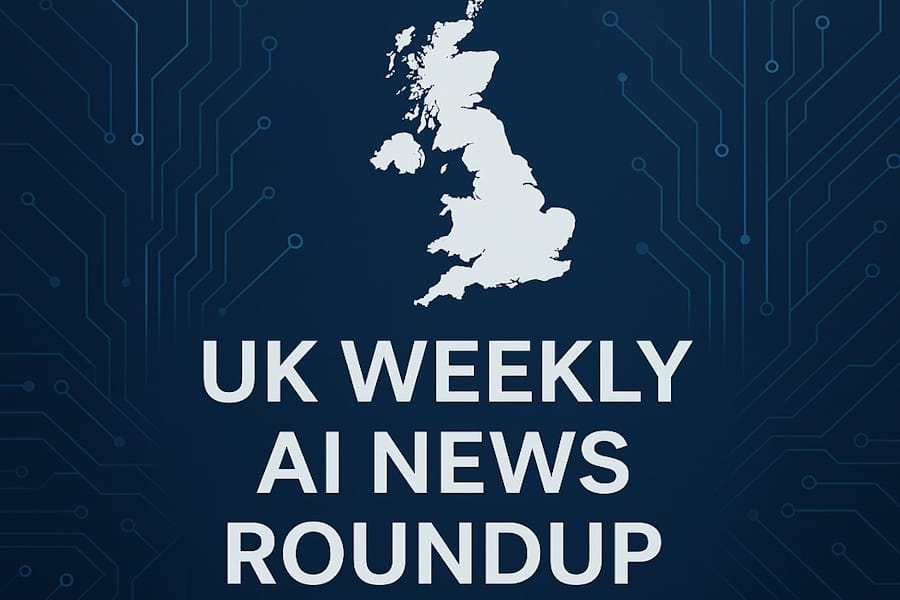The AI Power Grab
Why Countries Like the UK Risk Losing Control in the Age of Automation

Introduction
Publish Date: Last Updated: 18th June 2025
Author: nick smith- With the help of GROK3
The rise of artificial intelligence (AI) and robotics is reshaping the global economy at an unprecedented pace, outstripping the ability of many governments to adapt. For decades, Western nations like the United Kingdom have championed free-market capitalism, but the rapid advancement of AI raises a provocative question: could automation lead to a “pseudo-communist” system where governments must provide universal basic income (UBI) to offset job displacement, while individuals rely on AI-driven entrepreneurship to thrive? This article explores the risks of the UK’s reliance on foreign AI systems, the challenges of taxing AI-driven wealth, and the urgent need to treat AI as a vital resource to avoid being “held ransom” by global tech giants.
The AI Development Landscape: A Concentrated Powerhouse
At the heart of AI development lies a small, elite group of companies, primarily based in the United States and China. Estimates suggest only 1,000–5,000 companies globally focus on creating foundational AI technologies—large language models, computer vision, or advanced robotics—compared to the 55,000–90,900 companies utilizing AI in some form. The US leads with giants like OpenAI (ChatGPT, $157 billion valuation), Anthropic (Claude, $7.7 billion raised), and NVIDIA (AI GPUs, $3.3 trillion market cap). China follows with state-backed firms like Baidu (ERNIE) and startups like DeepSeek. The UK, despite a strong AI ecosystem with 727 startups (Stanford AI Index 2024), lags in scale, with investments of $3.5 billion dwarfed by the US ($67.2 billion) and China ($20.7 billion).
This concentration stems from the immense resources required: billions in funding, thousands of GPUs, and scarce talent. For example, training a model like GPT-4 reportedly used 10,000 NVIDIA GPUs, a feat only a few can afford. As a result, countries like the UK often rely on US or Chinese AI systems, licensing platforms like AWS or Azure to train local data for applications in healthcare, finance, or government services.
The Risks of Dependency
Reliance on foreign AI systems creates significant vulnerabilities for the UK and similar nations:
-
Data Sovereignty: Processing sensitive UK data (e.g., NHS health records) on foreign servers risks privacy breaches and conflicts with GDPR. For instance, past US-UK data transfer disputes (Schrems II, 2020) highlight the challenge.
-
Lack of Control: Proprietary AI models are often “black boxes,” limiting the UK’s ability to customize or audit them for biases or ethical alignment. This is critical in sectors like defense or public services, where misalignment could have dire consequences.
-
Technological Lag: Leading AI developers may withhold breakthroughs for strategic reasons—national security or economic advantage. The US’s 2023 restrictions on NVIDIA GPU exports to China show how access can be curtailed, potentially affecting allies like the UK.
-
Economic Disadvantage: Dependency hampers the UK’s ability to compete in AI-driven industries like autonomous vehicles or personalized medicine, where proprietary systems give first-movers an edge.
A 2024 X post warned of Chinese AI tools embedding surveillance, underscoring the risks of foreign systems in critical infrastructure. Without domestic AI, the UK risks being “held ransom” by global tech powers dictating terms and costs.
The Taxation Dilemma
As AI and robotics transform industries like finance (algorithmic trading, robo-advisors) and manufacturing (automated factories), economic value is concentrating among a few tech giants. Companies like NVIDIA, Google, or OpenAI generate massive profits, often booked in low-tax jurisdictions like Ireland or Singapore. For the UK, this creates a taxation crisis:
-
Shrinking Tax Base: Automation could reduce labor income by 20–30% by 2040 (OECD 2023), cutting payroll and income taxes. As robots replace workers, traditional revenue streams like VAT also decline.
-
Untaxable Wealth: Foreign AI companies’ profits are hard to tax locally, as value creation occurs abroad. For example, a UK firm using AWS for AI-driven manufacturing pays licensing fees, but the bulk of profits go to Amazon in the US.
-
Fiscal Strain: Without sufficient tax revenue, funding social programs like UBI—proposed to offset job displacement—becomes nearly impossible, exacerbating inequality.
This dynamic threatens the UK’s ability to manage the economic fallout of automation, where AI-driven industries dominate but contribute little to local coffers.
AI as a Vital Resource
AI is not just a technology; it’s a vital resource akin to oil or electricity, underpinning economic competitiveness and national sovereignty. Countries without control over AI development face strategic risks:
-
Economic Dependency: Relying on foreign AI increases costs and limits innovation, as the UK becomes a consumer rather than a creator of technology.
-
Security Risks: Using US/China AI in critical sectors like defense or healthcare exposes the UK to vulnerabilities, such as backdoors or data leaks.
-
Innovation Lag: Delayed access to cutting-edge models stifles local startups, reinforcing the dominance of US/China firms.
The rapid pace of AI growth—faster than anticipated—amplifies these risks. Governments, struggling to understand AI’s implications, are falling behind, leaving development to a handful of private companies.
The Pseudo-Communist Scenario
The unchecked rise of AI could push societies toward a “pseudo-communist” system, where automation displaces so many jobs that governments must implement UBI to cover basic needs, while individuals use AI tools entrepreneurially to generate extra income. For example, AI platforms like content creation tools or e-commerce algorithms could empower freelancers to compete globally. However, this assumes equitable access to AI, which the UK may lack if reliant on foreign systems.
Without domestic AI control, the UK could struggle to fund UBI, as tax revenues dwindle. This risks a dystopian alternative: severe inequality, with wealth concentrated among foreign tech giants and a tech-savvy elite, while displaced workers face unemployment and social unrest. Historical parallels, like the deindustrialization of the 1980s, show how economic transitions can devastate communities if left unaddressed.
Solutions for Sovereignty and Stability
To avoid being held ransom and ensure economic resilience, the UK must prioritize AI as a strategic resource:
-
Invest in Domestic AI:
-
Scale funding for AI research and startups, building on successes like Graphcore (AI chips) or DeepL (NLP). The UK’s £2.5 billion AI Sector Deal (2023) needs to rival US/China investments.
-
Establish national AI labs to develop sovereign models for critical sectors like healthcare or defense.
-
-
Innovative Taxation:
-
Implement a digital services tax (e.g., the UK’s 2% tax on tech giants, 2020) to capture foreign AI profits.
-
Explore a “robot tax” on companies using automation, as proposed by Bill Gates, to fund UBI or retraining. South Korea’s 2017 tax adjustments for automated industries offer a model.
-
Collaborate via the OECD to close tax loopholes, ensuring AI profits are taxed where value is consumed.
-
-
Data Sovereignty and Regulation:
-
Enforce data localization laws to keep UK data on local servers, enhancing control and taxability.
-
Develop AI standards for transparency and interoperability, reducing reliance on proprietary systems.
-
-
Regional Alliances:
-
Partner with the EU, Canada, or Australia to pool resources, leveraging frameworks like the EU’s AI Act (2024) for shared governance.
-
-
Workforce Transition:
-
Expand retraining programs for AI-complementary roles (e.g., AI ethics, system maintenance) to mitigate job losses and boost tax revenue.
-
Promote open-source AI platforms like Hugging Face to democratize access and empower local entrepreneurs.
-
The Consequences of Inaction
If the UK fails to act, the consequences could be dire:
-
Economic Polarization: Wealth concentrates among foreign AI giants, while displaced workers struggle, deepening inequality.
-
Social Unrest: Job losses and economic insecurity could fuel protests or populist movements, as seen in the 2018–2019 French “yellow vest” protests.
-
Sovereignty Erosion: Dependency on US/China AI undermines the UK’s autonomy in critical sectors, risking security and competitiveness.
-
Fiscal Collapse: A shrinking tax base limits funding for UBI or public services, making the “pseudo-communist” model unfeasible.
The rapid pace of AI development demands urgency. Governments’ lag in understanding AI’s implications risks a future where the UK is a technological vassal, unable to shape its economic destiny.
Conclusion
The UK stands at a crossroads. AI’s transformative power offers immense opportunities but also existential risks if countries remain reliant on foreign systems. By treating AI as a vital resource, investing in domestic development, reforming taxation, and ensuring data sovereignty, the UK can regain control and mitigate automation’s disruptions. Without action, it risks being held ransom by US and Chinese tech giants, with dwindling tax revenues and growing inequality threatening social stability. The vision of a “pseudo-communist” future—where UBI supports displaced workers and AI-driven entrepreneurship fuels growth—depends on bold, proactive policies. The time to act is now, before the AI power grab leaves nations like the UK on the sidelines of the automation age.
Recent AI News Articles
AI Questions and Answers section for The AI Power Grab
Welcome to a new feature where you can interact with our AI called Jeannie. You can ask her anything relating to this article. If this feature is available, you should see a small genie lamp above this text. Click on the lamp to start a chat or view the following questions that Jeannie has answered relating to The AI Power Grab.
Be the first to ask our Jeannie AI a question about this article
Look for the gold latern at the bottom right of your screen and click on it to enable Jeannie AI Chat.






